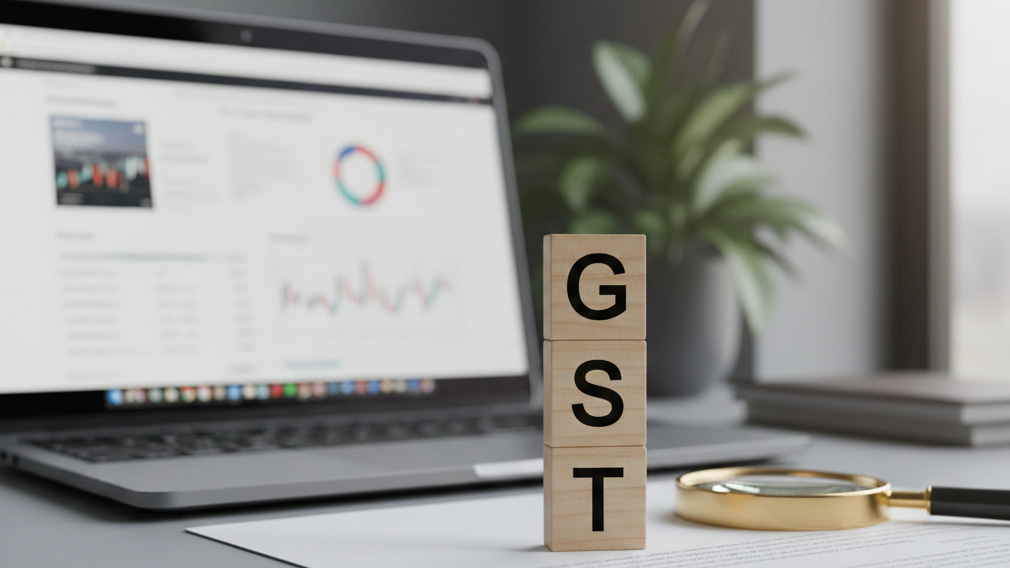




Singapore is known for its attractive tax system, but whether you're an individual, a business owner, or a foreign entrepreneur, there's always room to reduce your tax bill. In this guide, we cover actionable ways to reduce income tax in Singapore, help you plan smarter, and stay compliant.
Let’s start with the basics. Knowing how Singapore’s tax system works can help you take full advantage of available reliefs and plan more effectively.
Here’s a breakdown of the key components:
Tax Residency Status: You are considered a tax resident if you stay or work in Singapore for 183 days or more in a year. Tax residents enjoy progressive personal income tax rates.
Personal Income Tax Rates: For residents, tax starts at 0% and caps at 24%.
Corporate Tax: A flat 17% rate applies, but exemptions can significantly lower your actual payable tax.
Filing Obligations: Both individuals and businesses are required to file taxes via IRAS. Learn more about your filing requirements with ACRA and IRAS for businesses.
Need help staying compliant? If you run a business, a qualified corporate secretary can help ensure all your filings with ACRA and IRAS are accurate and on time.
Singapore uses a progressive tax system for resident individuals, with higher earners paying higher rates. Knowing your tax bracket helps you identify ways to reduce your taxable income and stay in a lower tier.
Below is the current resident income tax rate table for YA 2024 onwards:
| Chargeable Income | Income Tax Rate (%) | Gross Tax Payable ($) |
|---|---|---|
| First $20,000 | 0 | 0 |
| Next $10,000 | 2 | 200 |
| First $30,000 | - | 200 |
| Next $10,000 | 3.5 | 350 |
| First $40,000 | - | 550 |
| Next $40,000 | 7 | 2800 |
| First $80,000 | - | 3350 |
| Next $40,000 | 11.5 | 4600 |
| First $120,000 | - | 7950 |
| Next $40,000 | 15 | 6000 |
| First $160,000 | - | 13950 |
| Next $40,000 | 18 | 7200 |
| First $200,000 | - | 21150 |
| Next $40,000 | 19 | 7600 |
| First $240,000 | - | 28750 |
| Next $40,000 | 19.5 | 7800 |
| First $280,000 | - | 36550 |
| Next $40,000 | 20 | 8000 |
| First $320,000 | - | 44550 |
| Next $180,000 | 22 | 39600 |
| First $500,000 | - | 84150 |
| Next $500,000 | 23 | 115000 |
| First $1,000,000 | - | 199150 |
| In excess of $1,000,000 | 24 | - |
Source: IRAS
Tax Reliefs & Deductions for Individuals
Singapore offers several tax reliefs and deductions that can help reduce your chargeable income. These reliefs are aimed at encouraging family support, retirement savings, national service participation, and skills development.
Here’s a closer look at some of the most widely applicable types of tax reliefs:
Making voluntary top-ups to your own or your family members’ CPF Special or Retirement Accounts can qualify you for tax relief. You can claim up to S$8,000 for topping up your own account and another S$8,000 for topping up your parents', grandparents’, spouse’s, or siblings’ accounts, giving you up to S$16,000 in total relief per year.
This is one of the most effective ways to save on tax while preparing for retirement.
The SRS is a voluntary scheme that complements your CPF savings. Contributions to your SRS account are eligible for tax relief, up to S$15,300 per year for Singaporeans and PRs, and S$35,700 for foreigners.
Unlike CPF, SRS funds are more flexible, as you can invest them in approved instruments and withdraw them after the statutory retirement age with only partial tax.
If you’re an NSman, you automatically qualify for relief ranging from S$1,500 to S$5,000, depending on your service status. Spouses and parents of NSmen can also claim relief.
This is the government’s way of recognising your contributions to national service, and it can help bring down your taxable income meaningfully.
If you’re supporting an elderly parent, grandparent, or your non-working spouse, you may be eligible for relief of up to S$9,000 per dependent. The exact amount depends on whether the dependent lives with you and meets income thresholds.
For handicapped dependants, higher relief of up to S$14,000 may be claimed with no income limit. This applies not only to parents and spouses but also to children and siblings.
These reliefs recognise and support those caring for their loved ones, serving as an important benefit for families in multi-generational households.
If you’ve paid for courses to upgrade your skills that are relevant to your current or future employment, you may claim up to S$5,500 in relief per year.
This encourages lifelong learning and helps offset the cost of professional development.
If you're running a business in Singapore, whether as a sole proprietor, freelancer, or company director, you can access additional levers for tax savings. These extend beyond personal reliefs and include claiming allowable expenses, optimising company structure, and leveraging government support.
Below are practical strategies that can reduce your tax burden as a business owner in Singapore:
IRAS allows businesses to deduct expenses that are “wholly and exclusively incurred in the production of income.” These include costs such as advertising, rental, utilities, software subscriptions, transport for business purposes, and staff salaries. While depreciation of fixed assets is not deductible, businesses may claim capital allowances instead. Maintaining clean records and using accounting software is essential to substantiate these claims and remain tax-compliant.
Let our accounting and bookkeeping team help you stay audit-ready and fully compliant.
New startups in Singapore may be eligible for the Start-Up Tax Exemption (SUTE), which provides a 75% tax exemption on the first S$100,000 and 50% on the next S$100,000 of chargeable income, for the first three years of assessment.
Established companies enjoy the Partial Tax Exemption (PTE), which offers 75% exemption on the first S$10,000 and 50% on the next S$190,000 of chargeable income annually.
Learn more in our article on corporate tax exemptions.
Instead of taking everything as salary, consider drawing part of your compensation as dividends. Dividends paid out of after-tax profits are not taxed again in the hands of shareholders.
Initiatives like the Enterprise Innovation Scheme (EIS) and the R&D Tax Deduction encourage business innovation by offering generous tax benefits, such as enhanced deductions and optional cash payouts. To determine which incentives your business may qualify for, consult a tax advisor or corporate secretary, as eligibility depends on your specific activities and industry.
Avoid costly penalties and unlock incentives by staying compliant with statutory filings. A trusted corporate secretary can keep everything in check.
Foreign professionals and entrepreneurs can also legally reduce their tax burden in Singapore, even if they don’t live here full-time. Understanding the nuances of residency rules and structuring income properly is essential to unlocking savings.
Here’s how:
If you stay or work in Singapore for at least 183 days in a calendar year, you may qualify as a tax resident. Tax residents enjoy lower personal income tax rates and access to various reliefs, making this status financially beneficial for many expats and digital nomads.
Singapore generally does not tax foreign-sourced income received by individuals, unless it is received through a partnership in Singapore. This makes it an attractive base for foreigners earning income from overseas clients or investments.
Set up a private limited company in Singapore and benefit from the 17% corporate tax rate, which is much lower than personal tax rates in many other countries. If you live abroad, you’ll need at least one local director.
Our Nominee Director Service helps you meet this requirement safely while maintaining full control of your business.
Want to run your business remotely?
Our online incorporation service lets you register your company from anywhere, with all compliance handled for you.
To reduce your income tax, consider these quick year-end strategies:
Top Up Your CPF: Contributing to your CPF account before year-end not only helps your retirement savings but also qualifies you for tax relief.
Maximise SRS Contributions: Voluntary contributions to your Supplementary Retirement Scheme (SRS) account can lower your taxable income. Up to S$15,300 in contributions are eligible for tax relief for Singaporeans and PRs.
Review Business Expenses: If you're self-employed, ensure all allowable business expenses are claimed before the year ends. Keep proper documentation for deductions.
Timing Your Income: If possible, defer receiving income or invoices to the next year. This could help you lower your current year’s taxable income.
Make Charitable Donations: Donations to approved charities are eligible for a 250% tax deduction, which can significantly reduce your taxable income.
Swiftly’s Tips: Track expenses throughout the year instead of rushing to gather them during tax season.
Tax planning in Singapore doesn’t need to be complicated. Whether you're a local employee, entrepreneur, or foreign business owner, smart structuring and timely action can significantly reduce your tax liability.
Need expert support? Let us handle the heavy lifting with our incorporation, nominee director, and corporate secretary services.
What is the best way to reduce income for taxes?
Top up your CPF or SRS, claim eligible reliefs (e.g. Parent Relief), and deduct approved expenses to lower your taxable income.
How to calculate taxable income?
Total income minus allowable deductions and reliefs equals your chargeable income, which is taxed based on resident rates.
What is the tax relief for insurance in Singapore?
You may be eligible for Life Insurance Relief if your compulsory CPF contributions are less than S$5,000 in the year. If eligible, the relief is the lowest of:
The difference between S$5,000 and your CPF contributions
The total insurance premiums paid
7% of the insured value of your own or your spouse’s life

20 Feb 2026
You’ve just received an invoice from a new vendor. It’s got that 9% GST line item at...

23 Jan 2026
You've incorporated your Singapore company, or you're planning to. The next step is opening a...

21 Jan 2026
Although setting up a foreign owned company in Malaysia comes with minimal requirements, you...